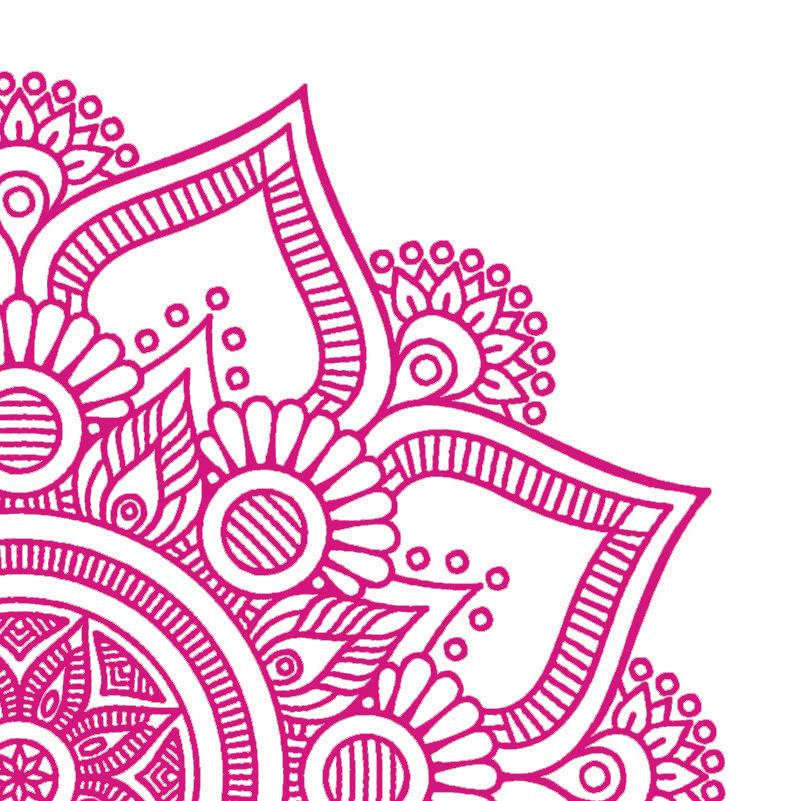
10 minute read
The long road to Dhaka
from Engage issue 47
Words: Hannah Watson Photos: Hannah Watson and Melanie Webb
How do you make a difference in a country routinely devastated by natural disasters, with one of the world’s fastest growing economies, refugee crises and population sizes? For BMS World Mission teacher, Louise Proctor, you start with the nation’s three-year-olds.
Advertisement
The long road to Dhaka

A pen without ink

“Do you have slums in the UK?” James, our driver and translator, asks. I’m on the road with Louise Proctor, BMS World Mission’s Educational Consultant in Bangladesh, and James is driving us to school – to a BMSsupported preschool in Indurkani, to be exact. We’re here to see the difference BMS supporters are making in the lives of Bangladeshi families by making education possible for their children. Curiosity has been the theme of our long car ride out of Dhaka, and the questions from all sides have flowed thick and fast. There have been questions about culture, family, religion, and language. About schooling, and about what everyone’s favourite fruit is. The traffic thins out, and we speed past a flock of brightly coloured dented metal trucks, green vegetation, blue sky. And then the road runs out.
We continue the journey to school on foot. Inside Indurkani preschool, it’s a humid 35 degrees, despite the puffball white clouds in the sky outside signalling that autumn is on its way. The preschool pupils, children aged between three and five and sublimely cute in their excitement, are gathered at the back of a room so dark your eyes take a moment to adjust. They’re thrilled to be at school, even though its corrugated iron roof traps the heat. Even though there’s no

electricity, lighting or running water. And even though one of the little boys only owns one shirt and one pair of shorts.
Louise worked in a village primary school in Scotland before she was called to join the preschool project with her husband Phil, a BMS engineer, over four years ago. Dreamed up and run by passionate Christians from the Social Health and Education board of the Bangladeshi Baptist Church Sangha, the project equips teachers to provide vital preschool education to poor, rural areas. 30 schools have been set up so far, and their progress is overseen by Louise.
Indurkani is one of the newest
In a country where preschoolers must pass an exam to continue their education, Louise supports teachers giving these children the best start in life.




schools on her list, and Louise and new teacher Moyna have big plans for installing fans and lighting. Louise will also support Moyna, as well as the 30 other teachers, to plan creative lessons, spending more time outside, and helping the kids to learn through play. It’s a momentous task, finding buildings for school rooms, making plans to refit them and ensuring their safety, something on engineer Phil’s watchlist. The vision is to have a preschool in every village where there’s a Baptist church, which would take the total to 370. Oh, and there’s one (huge) additional hurdle. Preschool education is currently nonexistent in Bangladesh.
I discover this from Louise,

who explains that every child in Bangladesh must nonetheless pass an exam to get into primary school. Faced with a test for which many children aren’t prepared, kids as young as five, especially in rural areas, are being set up to fail. And, as one of the preschool parents tells me, being without an education in Bangladesh is “like being a pen without ink”. It’s a brilliant phrase to describe the frustration of a life lived with skill, intelligence and potential on your side – everything except ‘ink’, the education that unlocks it all. And so, Louise Proctor arrived, over four years ago, exactly where the need is greatest.
Support Louise and Phil Proctor as they bring hope to Bangladesh.


You can equip some of the world’s poorest children for a better future, starting with the lessons they’ll learn from the very youngest age: that Christians see them as God does, and believe in their worth. Head to
www.bmsworldmission.org/
lpproctor to start giving today.
It would be a “hardship” if this school didn’t exist, says Sunika.


Mrs Nayan Baidya teaches at Bethgram preschool, described as “brilliant” by the grateful parents whose children learn letters, counting and Bible stories there every day.
The long road to Dhaka

It’s clear the parents from Indurkani are delighted with the new school, though they’re looking forward to the improvements planned for the building. For Sunika, as for many of the mothers, education is the only way to escape the poverty of rural Bangladesh. Indurkani is the first school that her son Srijon has been able to attend. They live on an island, encroached upon when the monsoon rains come each year, and are “very happy and thankful” that this new school is a short, safe, walk away. “Among all the parents here, we are the poorest,” says Sunika, sadly, pragmatically. “We’re going to try heart and soul to educate our children – but we just don’t know what will happen.”
“This is rural Bangladesh,” James tells me later. “Everyone has a story like this one – everyone spends all their energy fighting against poverty.” But as we leave Indurkani, Sunika has a message for BMS supporters, who made it possible for Srijon to begin school. “I can’t imagine not thanking you,” she says, “because you’re supporting us. That’s why our children are getting an education. If this school continues to run, it will be great for the whole community. We’re very thankful.” This opportunity is not only for her, it’s for everyone with a son or daughter, hoping for a better future.
We clamber back into the car, and from behind the wheel, James is keen to tell us about his first journey along this road, at the age of seven. He’d seen a kaleidoscope of Dhaka as a small boy – a big, gleaming city with cars and streetlights – so different to his village. He took 20 taka from his father’s pocket and climbed on a boat. But in Dhaka, there was nowhere to sleep. The gleaming city was cold. James was a child, a selfconfessed ‘free spirit’, but estimates suggest that 400,000 low-income

migrants resettle in Dhaka every year. It seems that for many, urban metropolises still hold out the only route to a better future – the promise of James’ kaleidoscope dream.
Except, perhaps, at Bethgram preschool. Louise was keen to show me one of her most established and successful schools, where the conversations seem to centre on hope. There are things to change, of course – the parents would love to install a fan – but the future seems bright for both families and their children. Bethgram’s teacher, Mrs Nayan Baidya, has made ingenious mats out of hessian sacks so many of the lessons can take place outside in the warm sunshine. “The school is brilliant,” Sohana, one of the mums tells me, as we watch the children giggle and goof around as they sing ‘Head, shoulders, knees and toes’. “The teaching methods mean the environment is really cheerful.” And although Sohana’s daughter will be
Mrs Nayan Baidya teaches at Bethgram preschool, described as “brilliant” by the grateful parents whose children learn letters, counting and Bible stories there every day.


Preschool parent Akhe says that all the parents agree that the school is fantastic.
taking her primary school exam soon, Sohana isn’t worried.
As well as providing children with the best start for their exam, the preschool brings good news in the form of Bible stories for the mixture of Muslim, Hindu and Christian children who attend. I watch as the parents cluster around, and then lean in, smiling, to hear the story of Jesus walking on the water. So many of the parents stay to hear the lessons their children receive here, and it’s easy to see why they feel more hopeful for the future because of them.
It’s hard to peel yourself away from such a lovely scene, but when we reluctantly leave to drive the long road back to Dhaka, we find a message waiting on our car. A little finger has traced through the dust, spelling out the name “Samir” again and again with smiley faces on the windscreen and flanks. I think of Samir’s future in a country buffeted by poverty and climate change, and then I think of BMS’ work here,

giving him the best possible start on a long road ahead. For Louise, the work is all about that long road. “In a world that’s full of problems, and in a country that suffers a lot more than many other countries, where do you begin change?” she asks. “Well, for me, you start with children. Children who are nurtured, loved and cared for will have a stronger future. And why shouldn’t these children have a chance?” •
You supported our Bangladesh appeal, raising thousands of pounds for evangelists taking the gospel to areas where others don’t dare to tread.




They’ve shared Jesus’ love indiscriminately, with neighbourhoods open and warm to the gospel, as well as where extremist religious groups pose a threat. Because of you, people are hearing of Jesus’ love for them for the very first time. Thank you.
A letter from Albania
Rexhina Uzuni is a physiotherapist based at BMS-supported community centre Tek Ura, in Tirana, Albania. She describes life after the 2019 earthquake, and her work serving local people, most of them long-term patients and children with complex disabilities.

It’s been tough in Albania since the earthquake, where many people are homeless and 50 people died. Life is very hard for many people: they have fears about work, their houses, the future of their families and their health. The earthquake exacerbated these fears and made life feel even more challenging. Thankfully, everything was minimally affected around Tek Ura. We were pleased to open the day after the earthquake to provide support to the community and talk with people who were scared.
I’m very happy to be bringing life and hope to people who struggle to access health services in Albania. No two days are the same – I may help people to understand a hospital letter, or run group sensory therapy sessions. I love the relationships we build with people. We can celebrate improvements together, whether that be a child learning how to stand up on their own, an adult having an improvement in their back pain or a child smiling in our sensory therapy.
One of our recent success stories was with a patient with a chronic long-term neurological problem. After therapy she is now able to respond to stimuli, and to laugh and enjoy each session. We are very proud of her, but also happy for her mum, as her daughter is able to engage with her more and more each day.
Before I go, let me say thank you. Your support means that we can offer physiotherapy to people who would not otherwise have any. I’d ask you to pray that people here understand that they are valued by God, rather than feeling they are worth nothing. I hope you are encouraged by what I am doing. For me it is truly exciting to work with patients every day, helping them see changes in their lives!
Rexhina Uzuni







